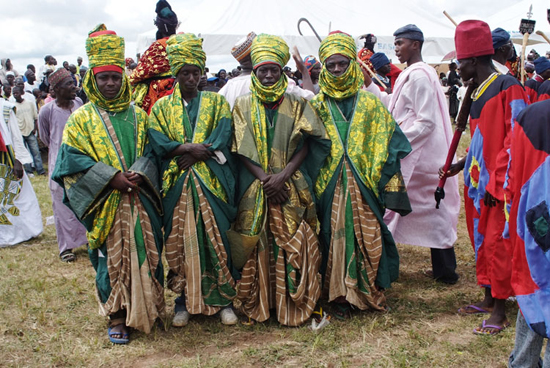Until recently, it was assumed that the Hausa clan’s ancestors originated in Saudi Arabia, Nigeria, or Ghana. But, it merely a thought.
The Hausa are the most populous ethnic group in Sub-Saharan Africa, and their language is the second most widely spoken after Arabic.
The Hausa are a diverse but culturally homogeneous people who live primarily in the Sahelian and savanna regions of southern Niger and northern Nigeria, with significant indigenized populations in Benin, Cameroon, Ivory Coast, Chad, Sudan, Central African Republic, Republic of the Congo, Togo, Ghana, Eritrea, Equatorial Guinea, Gabon, Senegal, and Gambia.
Predominantly Hausa-speaking communities can be found across West Africa and along the traditional Hajj route north and east through the Sahara, with a particularly large population in and around Agadez.
Over the last 500 years, other Hausa have migrated to large coastal cities in the region, such as Lagos, Port Harcourt, Accra, Abidjan, Banjul, and Cotonou, as well as to parts of North Africa, such as Libya.
The Hausa, traditionally live in small villages as well as in precolonial towns and cities where they grow crops, raise livestock including cattle as well as engage in trade, both local and long distance across Africa. They are said to speak the Hausa language, an Afro-Asiatic language of the Chadic group.
Still a status symbol of the traditional nobility in Hausa society, the horse still features in the Eid day celebrations, known as Ranar Sallah (in English: the Day of the Prayer). Daura city is the cultural center of the Hausa people. The town predates all the other major Hausa towns in tradition and culture.
In the last 500 years, the Hausa have traversed Africa’s vast landscape in all four corners for a variety of reasons, including military service, long-distance trade, hunting, hajj, fleeing oppressive kings, and spreading Islam.
Historically, Katsina was the centre of Hausa Islamic scholarship but was later replaced by Sokoto stemming from the 17th century Usman Dan Fodio Islamic reform.
In clear testimony to T. L Hodgkin’s claim, the people of Agadez and Saharan areas of central Niger, the Tuareg and the Hausa groups are indistinguishable from each other in their traditional clothing; both wear the tagelmust and indigo Babban Riga/Gandora. But the two groups differ in language, lifestyle and preferred beasts of burden (the Tuareg use camels, while Hausa ride horses).
Other Hausa have mixed with ethnic groups southwards such as the Yoruba of old Oyo, Nupe and Igbirra in the northern fringes of the forest belt and in similar fashion to their Sahelian neighbors have heavily influenced the cultures of these groups.
In Hausa areas, Islamic Sharia law is commonly the law of the land, and any Islamic scholar or teacher, known in Hausa as a m’allam, mallan, or malam, is well versed in it. Because of their attitude toward ethnic identity and cultural affiliation, the Hausa have been able to colonize one of Africa’s largest non-Bantu ethnic groups.
The Hausa Bakwai kingdoms were established around the 7th to 11th centuries. Of these, the Kingdom of Daura was the first, according to the Bayajidda Legend.
In what became Northern Nigeria, the Hausa Kingdoms were independent political entities. The Hausa city states grew into southern trans-Saharan caravan trade hubs.
These city states, like others in the Mali Empire’s Gao and Timbuktu, became long-distance trade hubs.
SOURCE: https://en.m.wikipedia.org/wiki/Hausa_people


